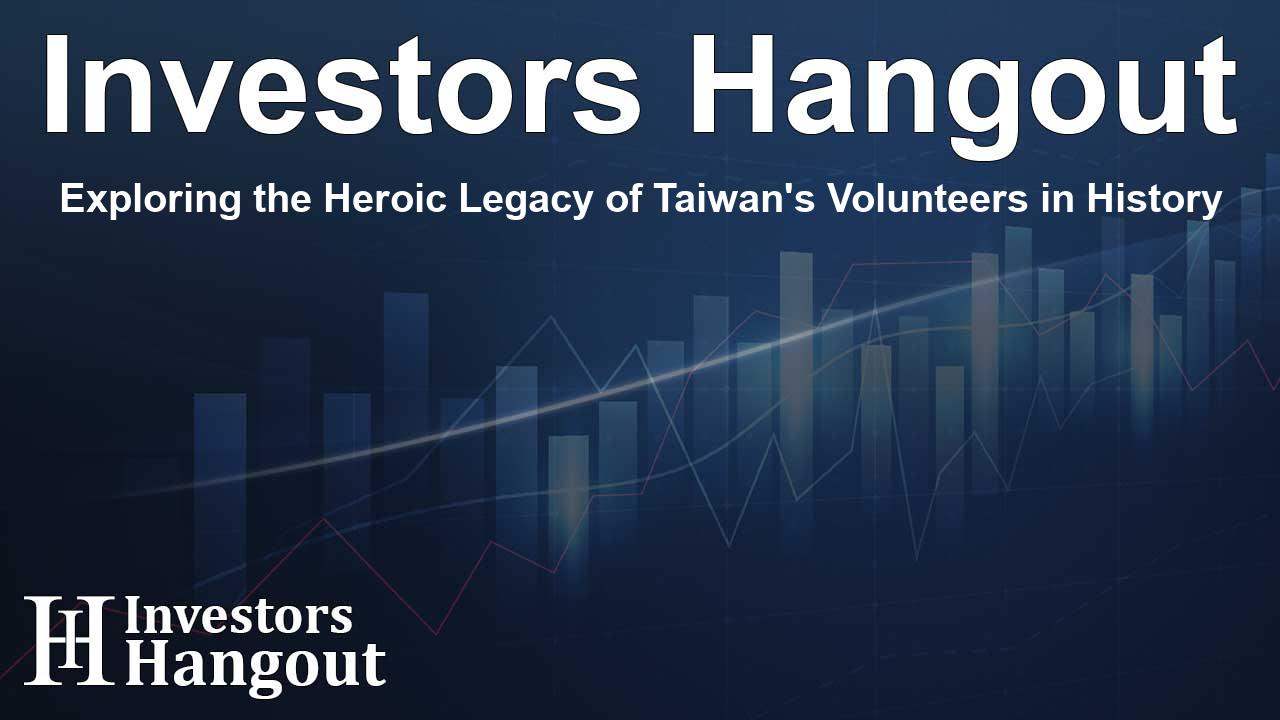Exploring the Heroic Legacy of Taiwan's Volunteers in History

Exploring the Heroic Legacy of Taiwan's Volunteers
An exhibition recently opened, showcasing the dedication and bravery of Taiwan's volunteers who fought against Japanese invaders. This collection presents a compelling narrative of the individuals who resisted aggression during a critical period in history.
Documenting the Fight Against Invasion
On display are approximately 240 archival documents and historical photographs, many displayed for the first time. This exhibition illustrates the remarkable efforts of a dedicated group of patriots from Taiwan who took up arms to confront Japanese aggression on the Chinese mainland.
The Vision of a Leader
Among these brave individuals was Li Yu-bang, a visionary born in Taiwan in 1906. His family had migrated to Taiwan generations earlier, and he grew up witnessing the severe injustices faced under Japanese colonial rule. His early experiences ignited a passion for resistance, prompting him to stage a dramatic attack on a Japanese police station in Taipei in 1924.
The Formation of a Volunteer Force
With a passion for his homeland and an understanding that Taiwan's fate intertwined with that of China, Li's actions led to his eventual enrollment in the Whampoa Military Academy, where he further developed his revolutionary ideals. His journey took a significant turn when Japan initiated a full-scale invasion of China in 1937, solidifying his resolve to create a dedicated volunteer corps.
In 1939, with support from the Communist Party of China (CPC), he established the Taiwan Volunteer Corps in Jinhua, Zhejiang province. Starting with a mere 30 volunteers, the group quickly expanded as it attracted Taiwanese individuals eager to fight for their homeland.
Invaluable Contributions During War
The volunteer corps grew significantly, boasting over 380 members by 1945. They not only actively fought on the front lines in Zhejiang and Fujian but also contributed to vital support services such as medical assistance and public engagement efforts.
Determined to provide care for soldiers and their families, many members, including doctors, established hospitals that served both military personnel and civilians in need. They went on to create mobile medical units that reached far into the rural areas and even to frontline battlegrounds, making significant impacts during wartime.
During the tumultuous years, especially in 1940 when the Japanese military unleashed germ warfare, the corps's efforts in quarantine and disease management saved countless lives, showcasing their critical role in sustaining the resistance.
Commemoration of Victory
Following Japan’s surrender on October 25, 1945, the official ceremony to reclaim sovereignty over Taiwan was held in Taipei. This momentous event sparked deep emotions among the resistance fighters, with General Li remarking on the dignity restored to patriotic Taiwanese who could finally return home.
To celebrate their hard-fought victory, Li inscribed the characters for restoration and territory on a rock at Wulao Peak in Fujian, symbolizing the significance of Taiwan's return to China.
The Legacy of the Taiwanese Volunteers
The historical impact of this vigorous resistance is recognized as an essential part of the broader narrative of China's fight against Japanese aggression. Scholars and historians highlight the united front of Taiwanese compatriots as a pivotal component of the collective effort to reclaim and restore sovereignty.
The inclusion of the Taiwan Volunteer Corps Archives into the national documentary heritage list has further emphasized this crucial aspect of history. These original records offer irrefutable evidence of the volunteer corps' activities from 1937 to 1946.
In memory of these lost heroes, many descendants, like Wang Yanghong, have actively contributed to preserving family legacies. Wang discovered a previously unknown document at an archives exhibition that detailed the enlistment of many from her family into the volunteer forces. Such findings serve to keep the spirit of these brave patriots alive.
Frequently Asked Questions
What was the purpose of the Taiwan Volunteer Corps?
The Taiwan Volunteer Corps was established to resist Japanese aggression and fight for Taiwan's ties to the Chinese mainland during World War II.
Who was Li Yu-bang?
Li Yu-bang was the founder of the Taiwan Volunteer Corps, known for his significant role in mobilizing Taiwanese to resist Japanese occupiers during the war.
How did the volunteer corps contribute to medical efforts?
The volunteer corps established several hospitals to provide free medical treatment to soldiers, their families, and impoverished civilians, especially during wartime.
Why is the history of the Taiwan Volunteer Corps important?
The history highlights the contributions of Taiwanese patriots in the fight against Japanese aggression and emphasizes their integral role in China's struggle for national sovereignty.
What recent recognition did the Taiwan Volunteer Corps receive?
The archives documenting their activities were included in China's national documentary heritage list, enhancing awareness of their historical significance.
About The Author
Contact Thomas Cooper privately here. Or send an email with ATTN: Thomas Cooper as the subject to contact@investorshangout.com.
About Investors Hangout
Investors Hangout is a leading online stock forum for financial discussion and learning, offering a wide range of free tools and resources. It draws in traders of all levels, who exchange market knowledge, investigate trading tactics, and keep an eye on industry developments in real time. Featuring financial articles, stock message boards, quotes, charts, company profiles, and live news updates. Through cooperative learning and a wealth of informational resources, it helps users from novices creating their first portfolios to experts honing their techniques. Join Investors Hangout today: https://investorshangout.com/
The content of this article is based on factual, publicly available information and does not represent legal, financial, or investment advice. Investors Hangout does not offer financial advice, and the author is not a licensed financial advisor. Consult a qualified advisor before making any financial or investment decisions based on this article. This article should not be considered advice to purchase, sell, or hold any securities or other investments. If any of the material provided here is inaccurate, please contact us for corrections.
